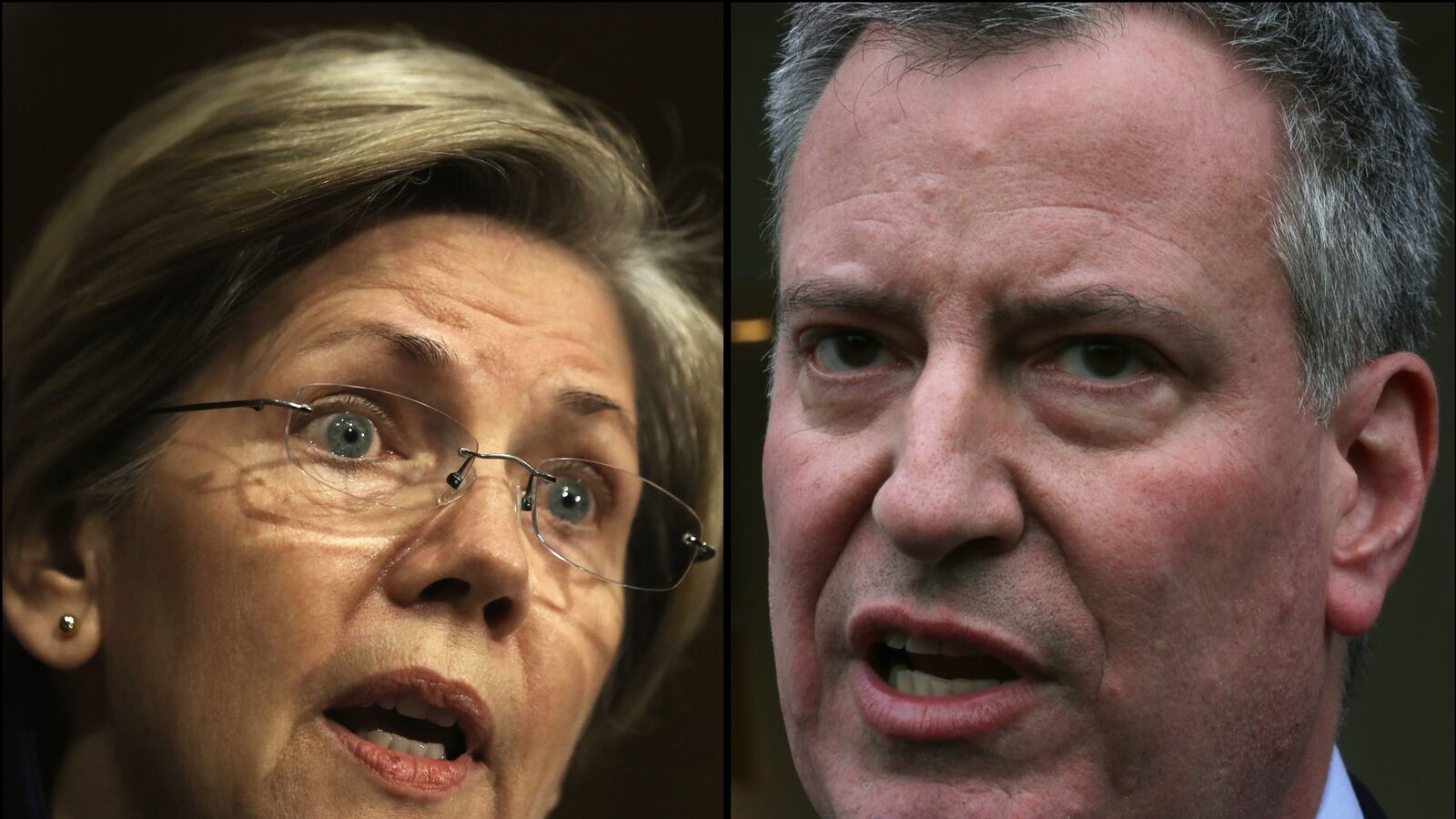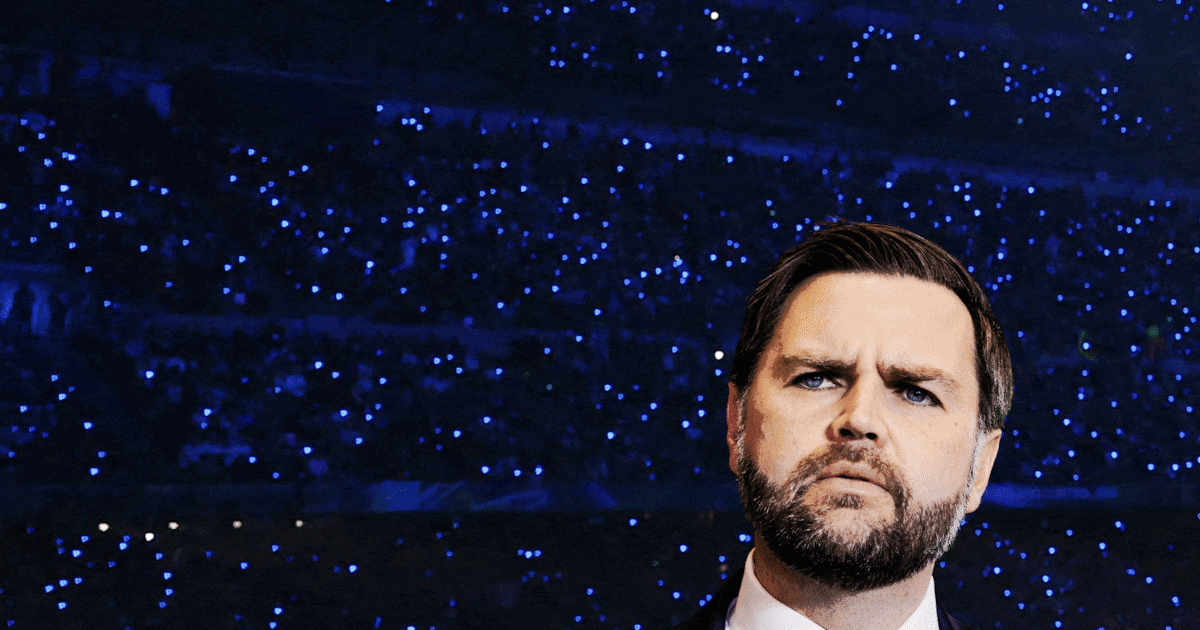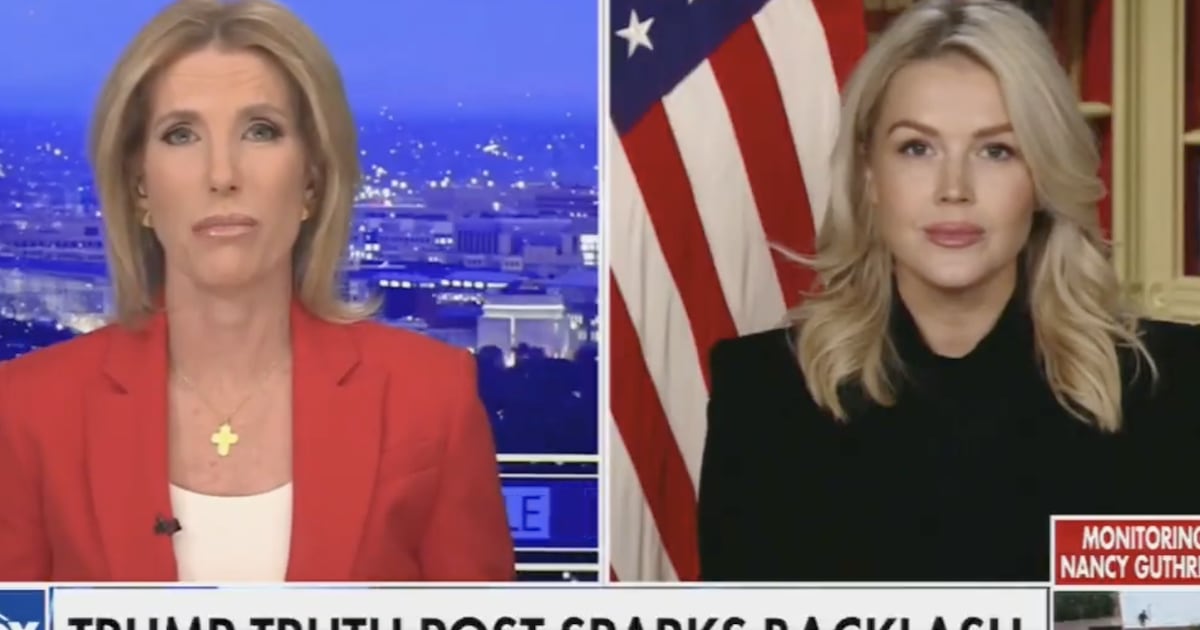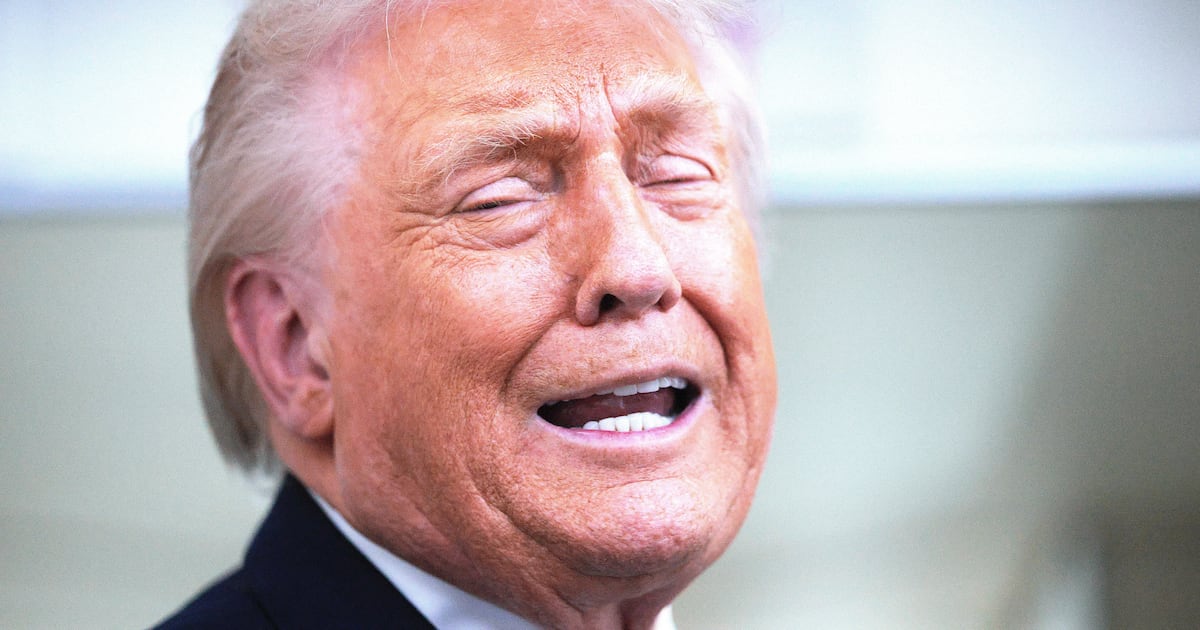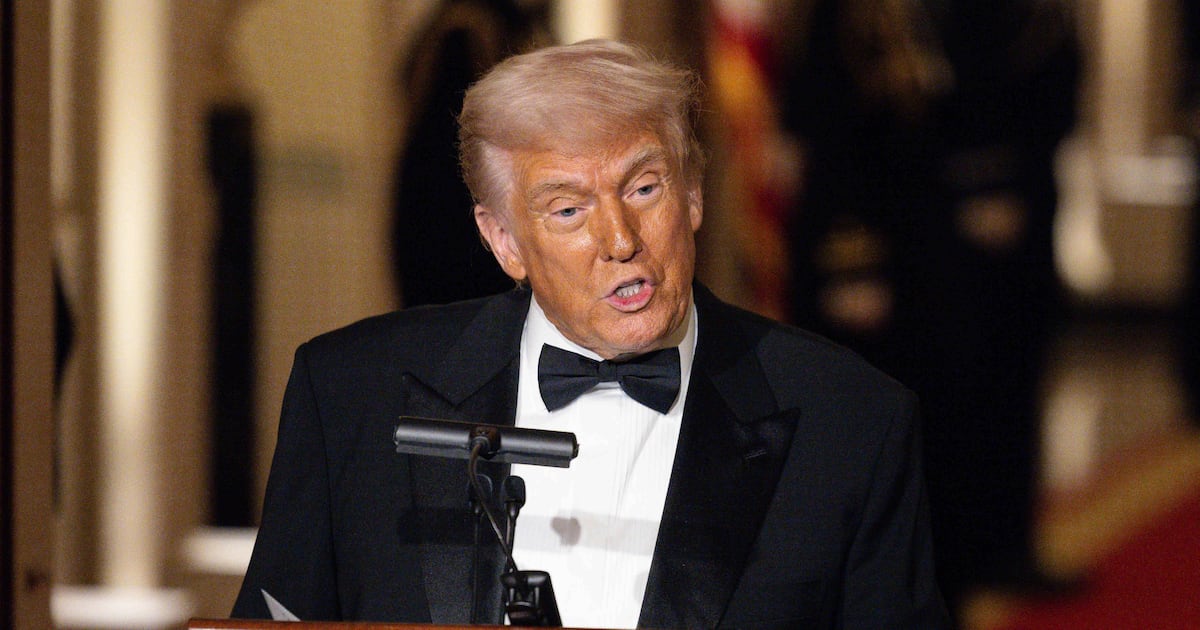Is this the beginning of the end of Democratic Party unity? Will we see primary challenges to incumbent Democrats who are viewed as not being liberal enough? How far are we from moderate Democrats be labeled as “DINOs”—Democrats in name only?
Only time will tell, but there is a growing possibility we will see “Tea Party” Democrats in the near future. They wouldn’t be conservatives like the Republican Tea Party members, but they would share the same dogmatic commitment to ideology and aversion to compromise. If you think Congress sucks now, just imagine how horrific it would be if there were Tea Party Democrats facing off against Tea Party Republicans!
The leaders of the resurgent progressive wing of the Democratic Party include the new mayor of New York City, Bill de Blasio, who has vowed to raise taxes on the wealthiest New Yorkers to fund more social programs. There’s also Sen. Elizabeth Warren (D-MA), who recently suggested (not advocated) that the minimum wage should be $22 an hour. And President Obama also seems to have joined this movement with his recent push to address income inequality and raise the minimum wage—both of which Obama is expected to name as priorities in his State of the Union address later this month.
Sure, there are some who applaud the rise of the new left. E.J. Dionne Jr., for example, wrote last week: “The return of a viable, vocal left will actually be good news for the political center.” He may be correct—this could be good for the political center. But it may not be good for the Democratic Party, at least if success is measured by electoral victories.
I’m not advocating that the Democratic Party reject all the proposals outlined above—I agree with many of them. I’m simply cautioning Democrats not to follow the Republican model of imposing a political purity test. Instead, Democrats should continue to embrace divergent points of view—be they pro-union or pro-business, pro-choice or pro-life.
If Democrats need any motivation to continue being a big tent party, they should check out the current state of the two political parties. Last year Obama championed universal background checks for all gun sales. The bill didn’t make it out of the Senate, in part because four Democratic senators who represent more conservative states opposed it. They chose political pragmatism over party ideology.
Since that vote, we haven’t seen well-organized, well-funded liberal Democrats challenge those senators in primaries. Nor have we observed these four Democrats being demonized by other others in their party. Indeed, one of the senators who opposed the measure, Max Baucus of Montana, was recently nominated by Obama to be U.S. ambassador to China.
By contrast, the Republican Party looks like an Ultimate Fighting Championship match. Tea Party Republicans are battling mainstream incumbent senators in a number of primaries, including in Wyoming, Texas, and Kentucky, to name just a few. And just a few weeks ago, the Chamber of Commerce announced it would spend $50 million to support establishment Republicans in their battles against Tea Party candidates. The RNC should consider putting the debates in these primary match-ups on pay-per-view and make some money.
But keep in mind that the GOP’s civil war didn’t happen overnight. It began with a few Tea Party successes that emboldened and inspired Republicans to become more ideological and less pragmatic. That could easily happen to the Democrats. This week, for example, New York Gov. Andrew Cuomo will deliver his State of the State address, in which it’s expected he will lay out his most progressive agenda ever as governor, including spending $100 million more on social programs.
And as the 2016 presidential race heats up, expect to see Democratic candidates run to the left of Hillary Clinton. Will she be forced, as Mitt Romney was in the 2012 Republican primaries, to move to extreme partisan positions to attract primary voters? While Romney won the nomination, his efforts to “Etch a Sketch” himself back to the center on certain issues was undone by his comments during the primaries. Could Hillary face the same fate?
The new progressive rhetoric has not gone unnoticed by certain parts of the Democratic Party. Third Way, a centrist Democratic organization, recently warned that Warren and de Blasio’s economic policies could be “disastrous” for Democrats from an electoral point of view.
Obviously, it’s the Democratic Party’s choice which direction to follow. I simply point out that Democrats may want to view the GOP’s infighting as the ghost of Christmas Future. The decision is theirs: Heed the warnings of that Republican apparition or ignore its message and possibly suffer the same ghastly fate as the GOP. What will it be?

